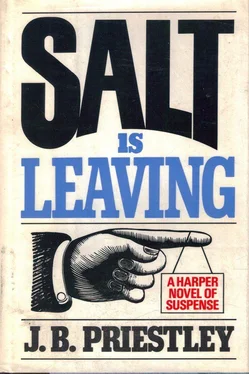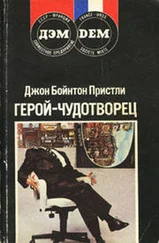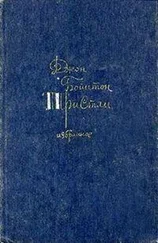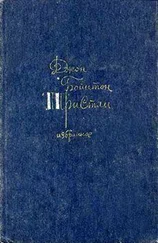"She must have followed her brother and Noreen that night, somehow got rid of him, perhaps told him you were looking for him, and then, starting a violent quarrel with Noreen-"
"She blacked out, Salt." Sir Arnold's voice was loud and yet curiously hoarse. "She never knew afterwards she'd done it. She thought she'd dreamt it. And then when Derek understood what had happened, he shot himself. What was I to do, man? What was I to do? I mean, beyond wishing I was dead too and done with it all."
"I think what you did was wrong," said Salt gently. "Even for Erica, as we've seen tonight. Besides, how can you be sure she won't black out again-"
"I know, I know, Salt. But what are you going to do now?"
"I'll get you off this hook. No police, no trials, no scandals. Now I know the truth, I'll take the risk of burying it. But you must swallow your pride, Donnington, and submit to two conditions."
"What are they?"
"First, Erica. She's just as sick as if she had typhoid. But if she can be cured – and I believe she can, though it'll take time – then here's a man who might do it." He scribbled a name and address in a notebook, tore out the page and handed it over. "Take her to him as soon as she's ready to leave hospital. He runs his own small mental home. Stay near by. See her as often as you can. And that brings me to the second condition I propose." He broke off to stare at Sir Arnold, who was now sitting up.
"I seem to have been told all this week," Salt went on, his tone much sharper now, "that if you were taken out of Birkden, it would fall to pieces. All right. Let it. Then perhaps out of the pieces another and better Birkden might be made. Stop trying to own everything and run everything. There's been far too much Sir Arnold Donnington here. Every time I've turned a corner, all this week, I've run into somebody or something you owned or controlled. This is bad for Birkden and bad for you. So this is my second condition. You stop being Birkden's Mr Big."
"I can't accept that, of course," said Sir Arnold coldly, getting up. "You"re taking too much on yourself now, Salt."
Maggie was alarmed by Salt's howl of fury. The next moment he had thrust Sir Arnold back into the chair.
"Now listen, Donnington. All this week you and Aricson between you have put every sort of obstacle in my way, not caring a damn what might happen to me. I've been willing to forget it. I've taken you off the hook. But power – power – you can't let it go, can you? And in thirty seconds flat, by God, you"re telling me to know my place. All right, then, Donnington. Stay on the hook and wriggle . If you can't let Birkden go, then I'll spend my holiday bringing it down on top of you. Don't forget, four of us know what happened. If you still want to be Mr Big, then you"re going to be the Mr Big who hid a body and said nothing about a murder. Maggie, get me the police."
Maggie began a slow vague move towards the telephone, almost certain that if Salt had been quite serious he would have rung the police himself.
"No – no – stop," she heard Sir Arnold croaking.
She stopped. Everybody and everything – time itself – stopped.
Sir Arnold had to restore at least a little of his lost dignity before he spoke again. He was that kind of man. "If I have to stay near my daughter," he began slowly, "then I can start easing out. So you'll get your way, Salt. I'm assuming, of course, that you'll all keep quiet."
"I can promise you that," Salt told him.
Sir Arnold levered himself out of the chair, looked round and produced a small grey smile, and cleared his throat. "Then I'll say goodnight."
"And I'll say goodbye," said Jill.
Salt went to let him out. Maggie looked at Alan and Jill, but they were looking at each other.
"I'm feeling hungry," said Alan.
"My God – not again, darling! Not after that dinner you ate," Jill continued. "It's going to be like keeping an elephant or something."
"Stuff him with cornflakes and cheap sausages," Maggie suggested.
"That reminds me," said Alan. "How are you getting home tonight, Mag?"
"Oh – don't be so dense," cried Jill. But then they heard Salt closing the door and Sir Arnold's car starting up. They kept silent until Salt joined them.
"Did I finish my whisky?" Salt asked. He looked tired again now, Maggie thought.
"Yes, but you can have mine. I don't want it," she told him. "Here. And, Alan, you must take the bottle back with you."
"Oh – must I?" Then he looked at Salt. "Several times this week – as you must know – I've thought you were merely fooling around. I've even argued with Jill, who wasn't always on your side but always thought you were devilishly clever. Now I know how wrong I was. By the way, what was that evidence you had against Donnington and his daughter?"
"I hadn't any – not a sausage. All bluff. That – and knowing something about people. Maggie, I believe I'm hungry."
"Oh – for God's sake – another of them!" Jill grabbed hold of Alan. "Come on, man. We'll see you both some time tomorrow."
Left to themselves, with the whole place suddenly very quiet and somehow expectant, Maggie and Salt looked at each other. Then he made a slight movement with his arms and she ran into them, and they began kissing. "Are you really hungry?" she asked, after an interval.
"Fairly – yes. We'll scramble some eggs soon. No hurry."
"I think you've been wonderful – so clever, so patient, so kind. I wish you'd explain sometime exactly how you worked everything out."
"I'll do that, Maggie my love. One night after a dam" good dinner, probably costing the earth now, somewhere in the Dordogne."
"I can pay for myself-"
"Not with me you can"t, girl. Besides, I've spent very little the last year or two. High time I began spending again. You don't mind, do you?"
She laughed. "No fear. But I warn you. If we"re any good together, I'm marrying you."
"And I warn you. Once we are married – and the holiday's over, you"re likely to find yourself on the Persian Gulf or in Penang or the Australian outback."
"I don't care. Though-" and now she hesitated, moving a hand across his cheek.
"Though – what?"
"Well – it's just that I'd hate to think that you of all men were running away from anything – from England, let's say. Or am I being stupid?"
"Not a bit. Just remember I've had seven hard years of it. I need a change. And I get along with people in rather outlandish places. We English seem to have got stuck in a nasty place. It's possible to make a class system work with a certain amount of ease and dignity. But we've done with that. It's also possible to make a clean fresh start. But we daren't risk that. So we"re bogged down in a morass of meaningless snobberies, sulkiness, anxiety, resentment; and for the time being I've had enough of it, Maggie my love."
"I see. Which doesn't mean I agree with you. How many eggs did you get?"
"Enough for now – and breakfast."
"For two?"
"For two."
"Taking some things for granted, weren't you, Dr Salt?"
"No, I can always use some extra eggs, Miss Culworth. Whereas-"
"I can always use that sponge-bag I happened to bring."
He laughed, and then she laughed. And they went together to remove the groceries from the spare bedroom to the kitchen, rather as if they had to practise at once doing things together.
ABOUT THE AUTHOR
John Boynton Priestley was born in 1894 in Yorkshire, the son of a schoolmaster. After leaving Belle Vue School when he was 16, he worked in a wool office but was already by this time determined to become a writer. He volunteered for the army in 1914 during the First World War and served five years; on his return home, he attended university and wrote articles for the Yorkshire Observer . After graduating, he established himself in London, writing essays, reviews, and other nonfiction, and publishing several miscellaneous volumes. In 1927 his first two novels appeared, Adam in Moonshine and Benighted , which was the basis for James Whale's film The Old Dark House (1932). In 1929 Priestley scored his first major critical success as a novelist, winning the James Tait Black Memorial Prize for The Good Companions . Angel Pavement (1930) followed and was also extremely well received. Throughout the next several decades, Priestley published numerous novels, many of them very popular and successful, including Bright Day (1946) and Lost Empires (1965), and was also a prolific and highly regarded playwright.
Читать дальше










